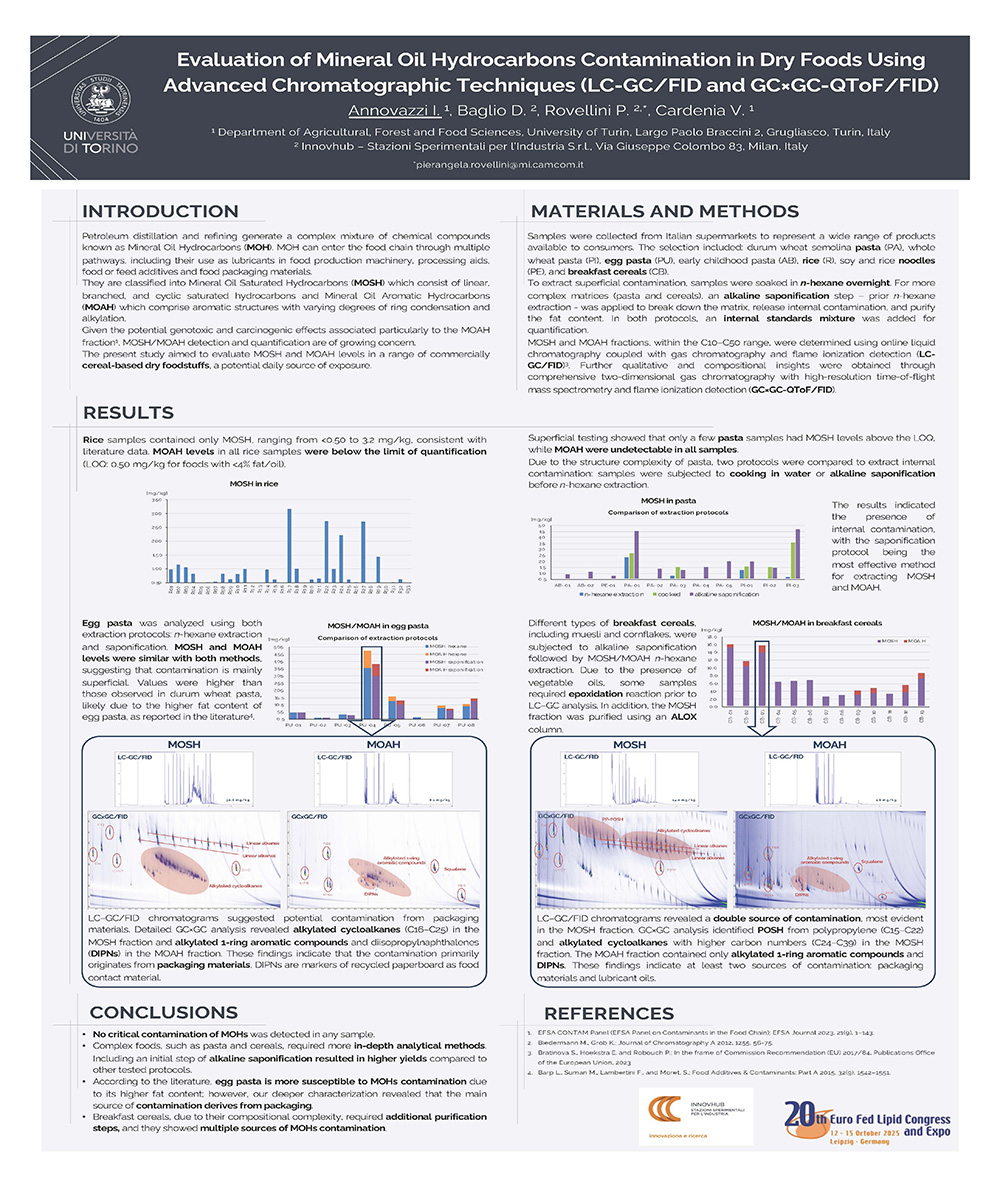Petroleum distillation and refining generate a complex mixture of chemical compounds known as Mineral Oil Hydrocarbons (MOH). MOH can enter the food chain through multiple pathways, including their use as lubricants in food production machinery, processing aids, food or feed additives and food packaging materials.
They are classified into Mineral Oil Saturated Hydrocarbons (MOSH) which consist of linear, branched, and cyclic saturated hydrocarbons and Mineral Oil Aromatic Hydrocarbons (MOAH) which comprise aromatic structures with varying degrees of ring condensation and alkylation.
Given the potential genotoxic and carcinogenic effects associated particularly to the MOAH fraction1 , MOSH/MOAH detection and quantification are of growing concern. The present study aimed to evaluate MOSH and MOAH levels in a range of commercially cereal-based dry foodstuffs, a potential daily source of exposure.
